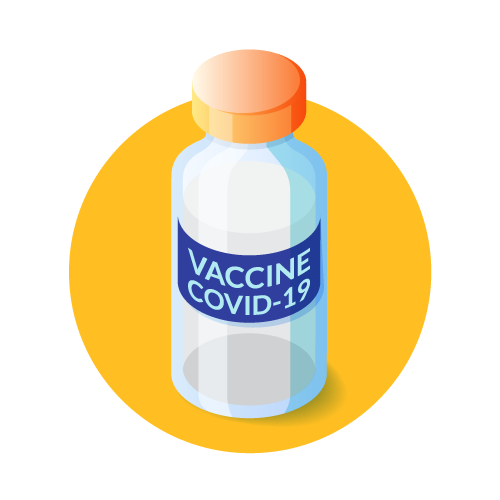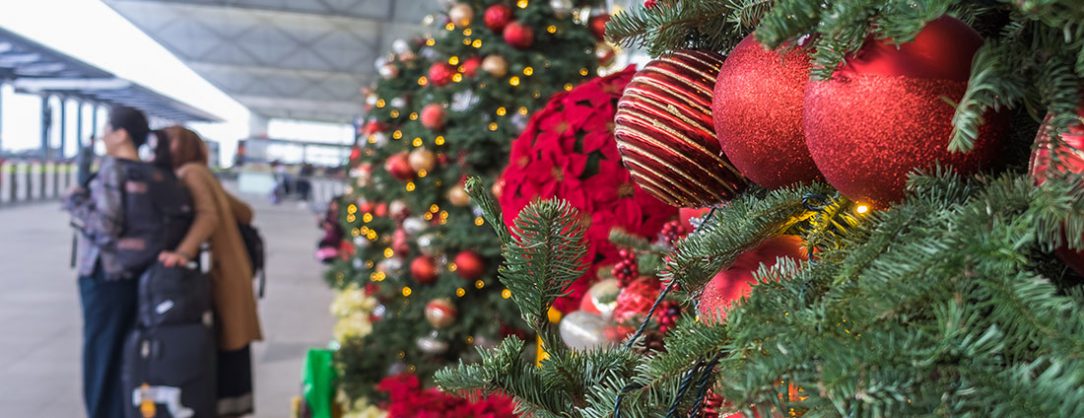Whether you’re visiting family, trekking to a bowl game, or taking a break from winter weather, there are a few ways COVID-19 might impact your trip.

1. You may need a COVID-19 test before you go.
Some destinations require a COVID-19 test before arrival, and different destinations require different types of tests. It’s your responsibility to know which type of test is required for your destination. If you’re flying, your airline is a great source for this information.
The Utah Department of Health has partnered with NOMI Health (Test Utah) to offer two locations with lanes dedicated for travel testing:
- Salt Lake City – Cannon Health building (288 North 1460 West)
- St. George – Dixie Technical College (610 S. Tech Ridge Drive)
Traveler testing at these two sites is free for Utah residents with proof of residency (state-issued identification, utility statement, credit card statement, tax notice, etc.). People who are not residents of Utah will be charged a $179 fee for rapid PCR tests (credit card only); however, PCR and rapid antigen tests will be provided free of charge. You also must show proof of travel, such as a boarding pass or other travel documents, and proof of Utah residence to receive the free rapid PCR test.
Some travel destinations may also require testing to be done at specific testing locations or include QR codes linked to results and CLIA information. At this time, the two state travel testing sites do not include QR codes or CLIA information.
You can also get tested at other COVID-19 testing locations or at private testing companies. Just make sure you’re getting the type of test that will be accepted at your destination.
Learn more about travel testing here:

2. Vaccination is the best way to protect yourself from COVID-19.
Travel increases your risk of being exposed to the virus that causes COVID-19. Make sure you’re fully vaccinated before you travel. If you’re already fully vaccinated, the CDC recommends getting a booster before you travel.
If you’re not fully vaccinated and you plan to travel, take precautions to protect yourself and others: wear a mask, physical distance, wash your hands often, and try to avoid touching things other people touch. Bring hand sanitizer and disposable wipes with you in case you do not have soap and water to wash your hands.

3. Be aware of COVID-19 requirements, policies, and restrictions at your destination and for your return trip.
The CDC has helpful information for people traveling within the United States, internationally, or on cruise ships: https://www.cdc.gov/coronavirus/2019-ncov/travelers/index.html.
The CDC also provides a list of travel recommendations based on how much COVID-19 is spreading in a country at https://www.cdc.gov/coronavirus/2019-ncov/travelers/map-and-travel-notices.html.
If you’re traveling internationally by air, you’ll need to get a COVID-19 test in order to return to the United States or show proof of recovery from COVID-19 within the last 90 days, even if you’re fully vaccinated. Get the test no more than one day before your return flight. You’ll need to show your negative test result to board.
More information on testing for air passengers flying into the United States: https://www.cdc.gov/coronavirus/2019-ncov/travelers/testing-international-air-travelers.html.
The CDC recommends you get tested after returning from international travel. https://www.cdc.gov/coronavirus/2019-ncov/travelers/international-travel-during-covid19.html#anchor_1634925927097.

